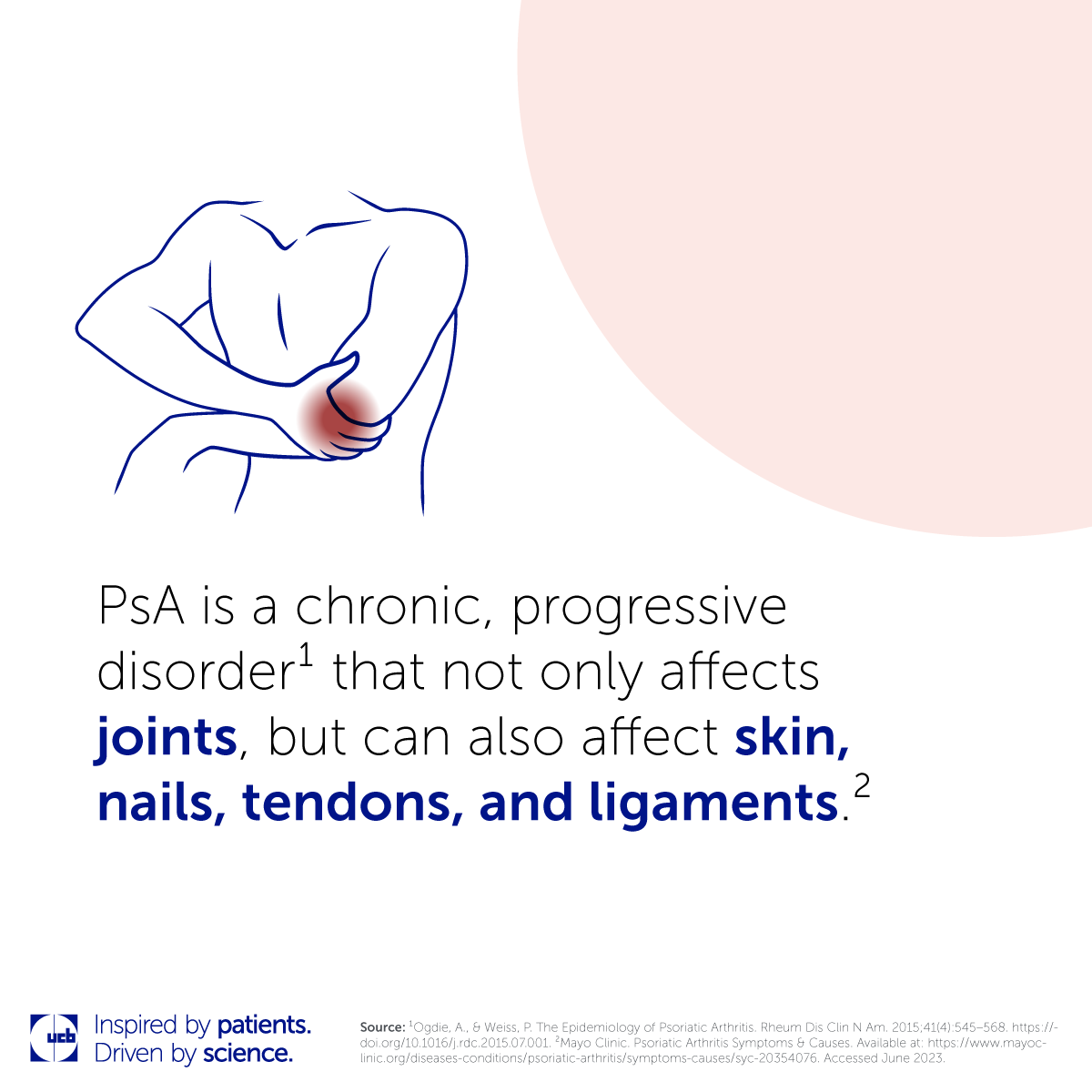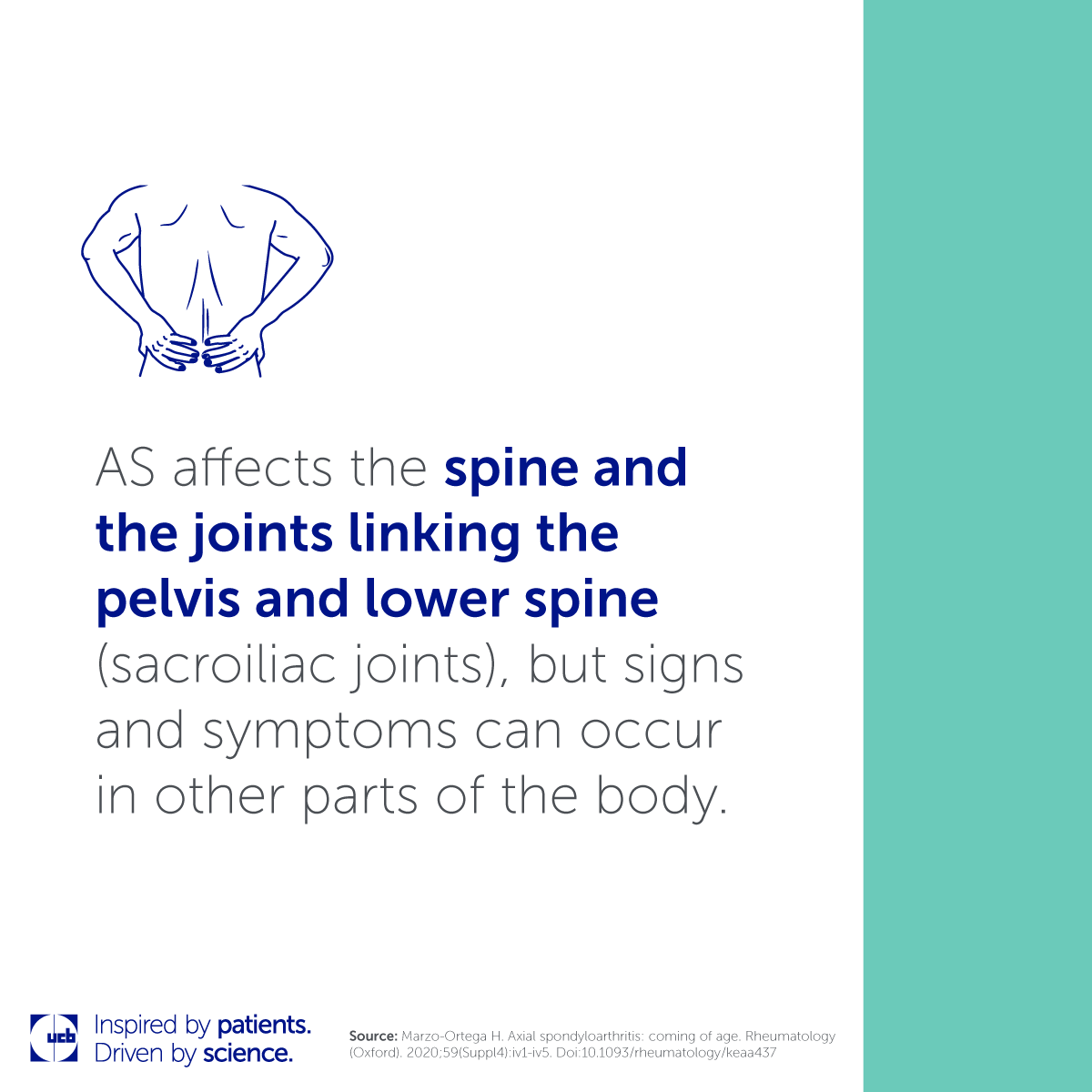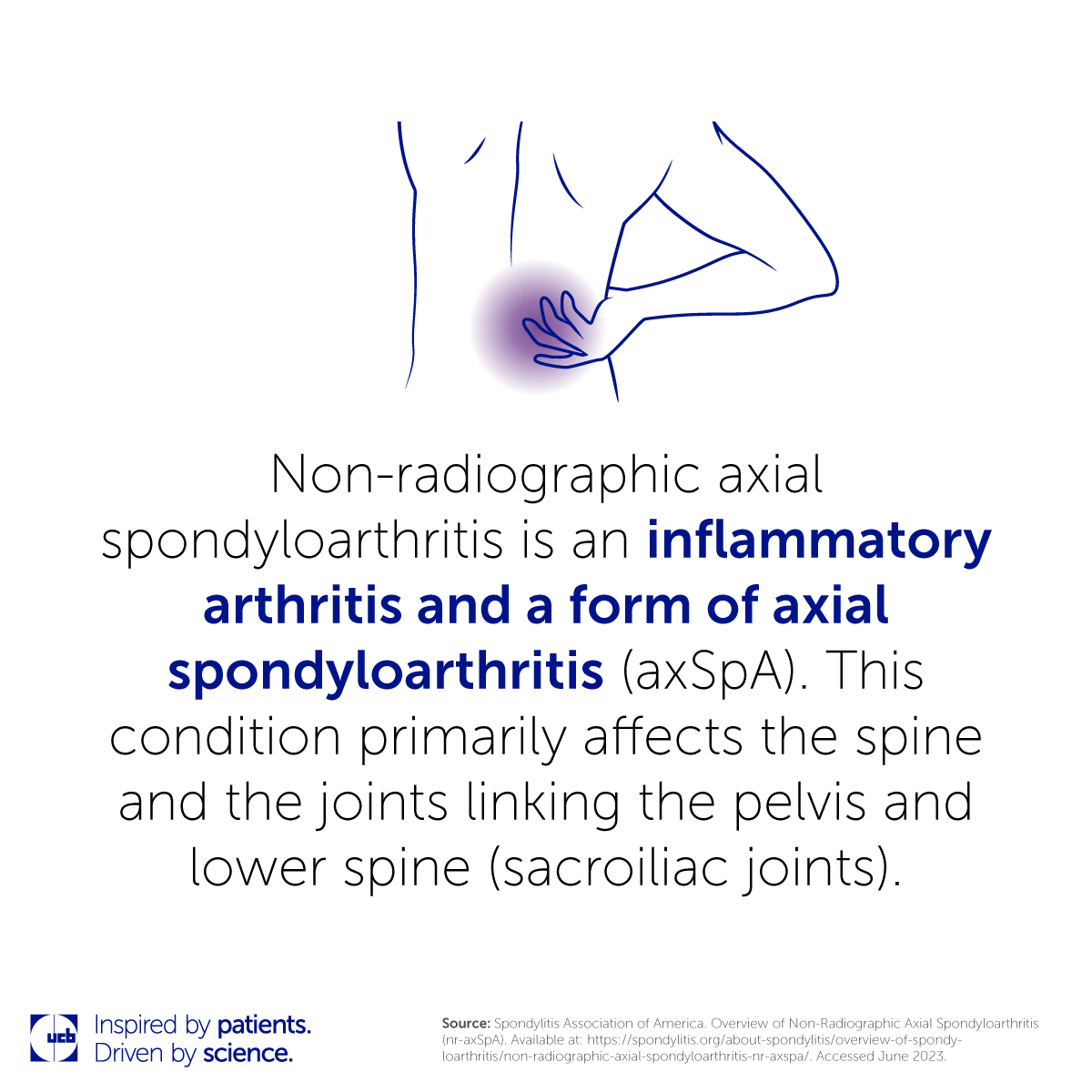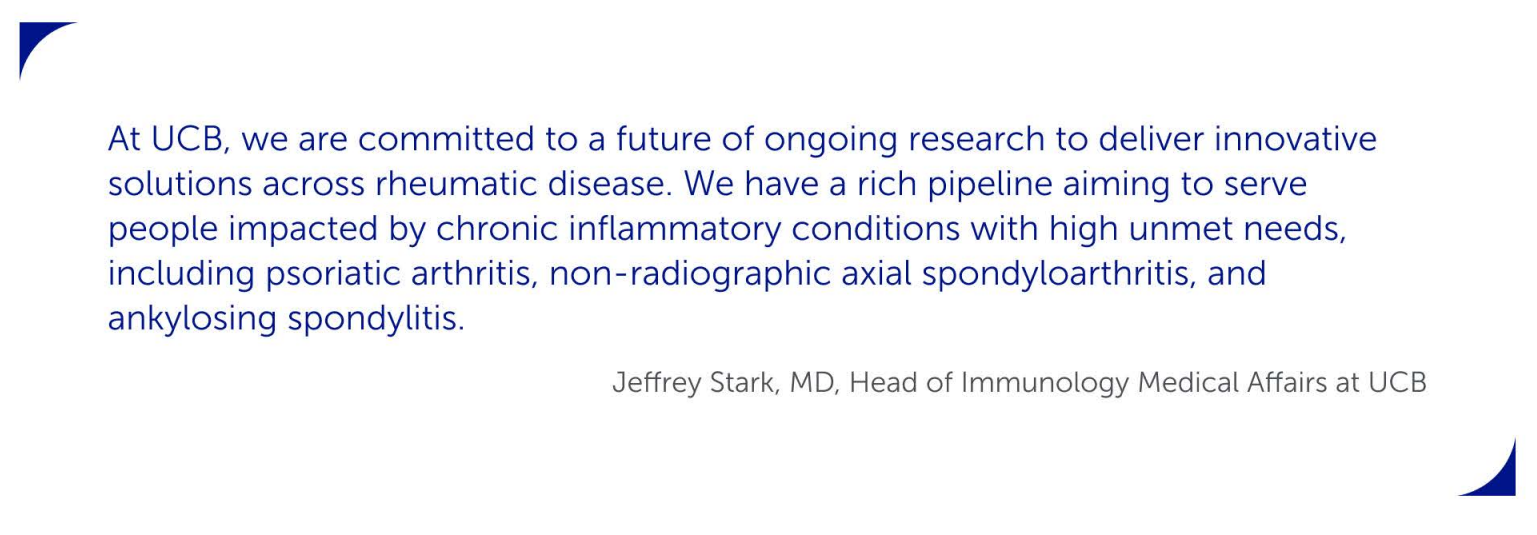Pillars of UCB Rheumatology

Our approach to discovering, developing, and delivering highly differentiated medicines starts and ends with the people who need it the most. UCB’s goal is to enable affordable access to our medicines for all people who need them, in a way that is sustainable for patients, society, and UCB.

UCB maintains deep connections with patient and scientific communities within immunology to drive innovation and ensure our work has the greatest possible impact, now and into the future.

In rheumatology, we have a rich pipeline aiming to serve people living with chronic inflammatory conditions with high unmet needs including psoriatic arthritis, non-radiographic axial spondyloarthritis, rheumatoid arthritis, ankylosing spondylitis, and lupus.

UCB is standardizing higher treatment thresholds as primary and secondary endpoints in our active clinical trial programs across the spectrum of rheumatic conditions.
We are also embedding cutting-edge technologies and digital innovation into everyday care for people with chronic inflammatory diseases to deliver a personalized experience, accelerate early intervention, and reduce time to diagnosis.




